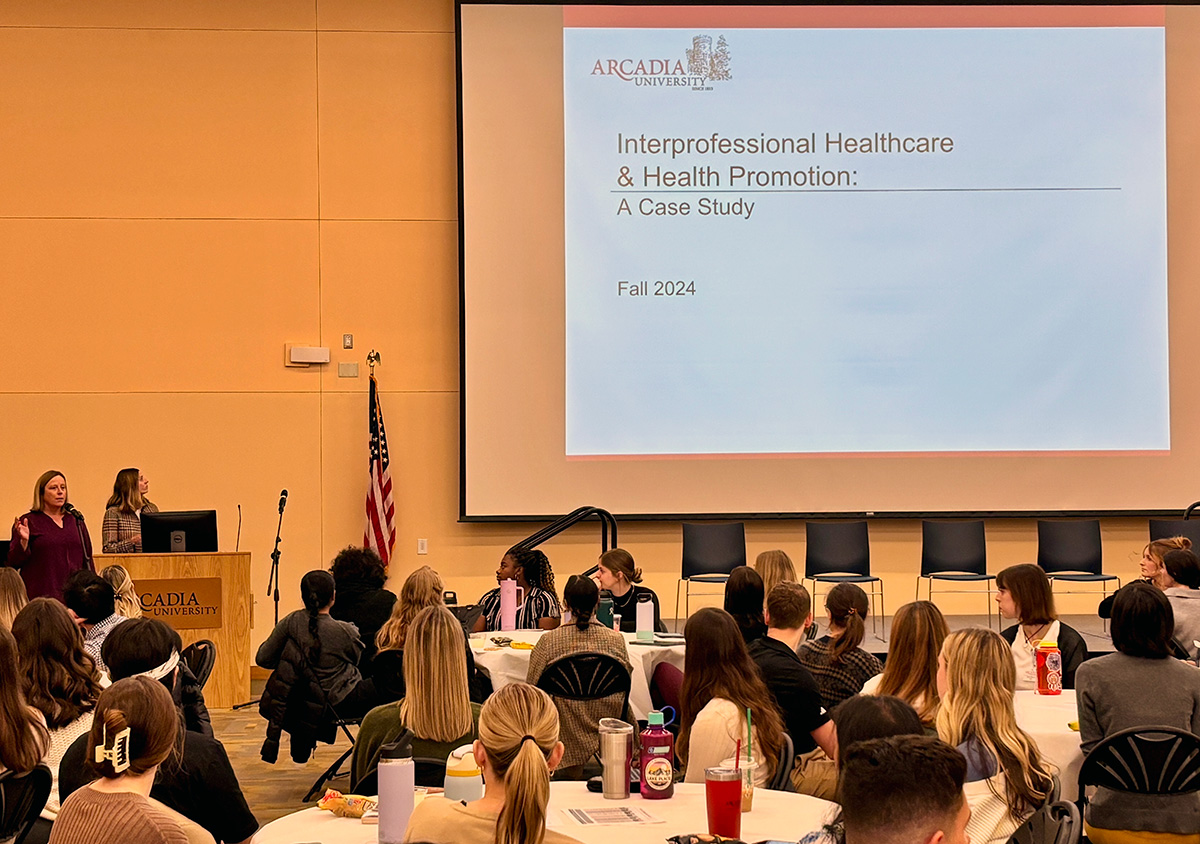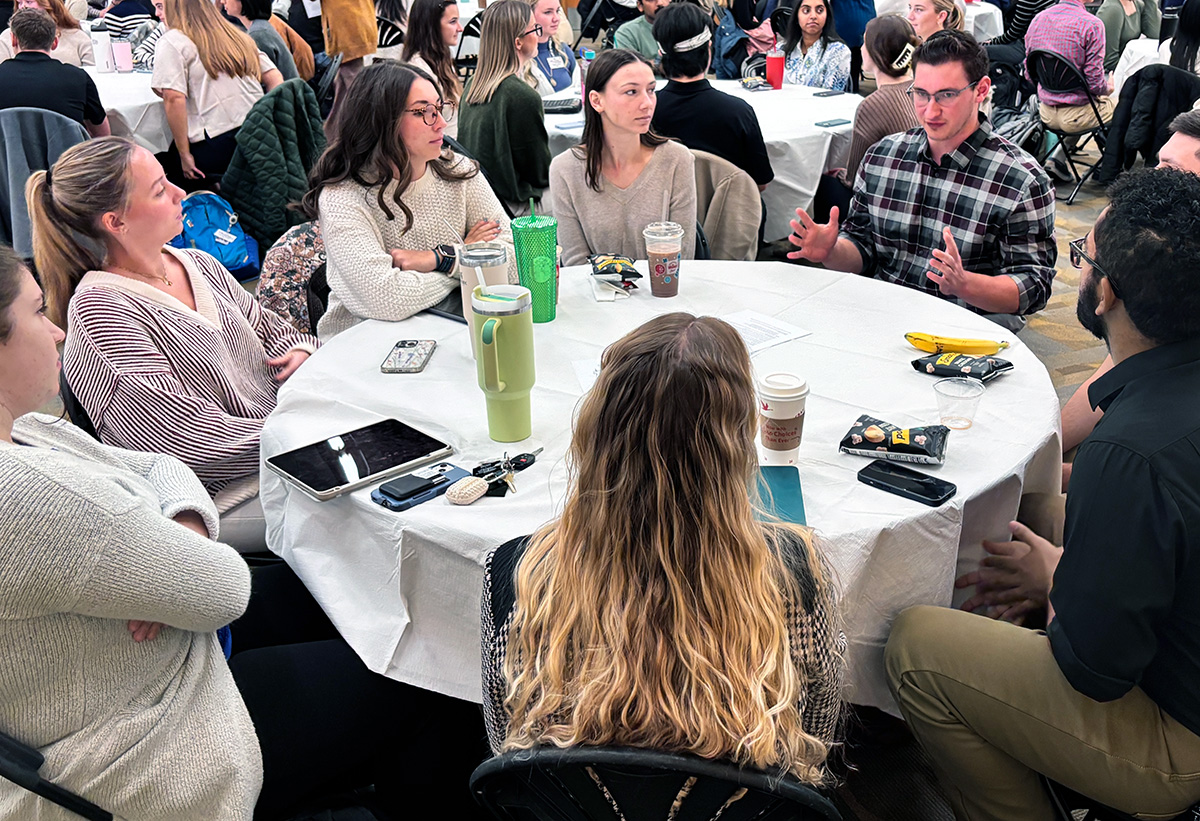Arcadia’s College of Health Sciences Celebrates Interprofessional Education Day

Students from Arcadia University’s College of Health Sciences (CHS) graduate programs in Physical Therapy, Physician Assistant, and Master of Public Health celebrated Interprofessional Education Day on Nov. 25 in the Commons Great Room.
The annual event emphasizes the collaborative nature of healthcare by bridging the gap between professions and allowing students to step outside of their professional bubbles. In recognizing and leveraging the strengths of various disciplines, students can further develop collaborative mindsets and think critically about health from a diverse and interdisciplinary lens as they work toward becoming healthcare providers.
“Professional development is important, especially in healthcare careers,” Erin Leonard ’26DPT said. “You’re working with other healthcare professionals to help patients all the time, so it’s good to be able to have an understanding of what they do and how we can work together to best support our patients and the healthcare economy.”
Cole Zsemlye ’26MMS, agreed.
“If I had to guess right now, most people who are here probably do not have a great understanding of what everyone else specifically does, so I think this event is important to learn new things, and also maybe correct some misperceptions about other healthcare careers,” he said.

To open, each program delivered a brief introduction to their profession and showed a video demonstration based on a pre-provided case study.
Participants then engaged in a structured two-part program, beginning with an overview and group discussions regarding what they’ve learned and their preconceived notions about each profession, strengths and opportunities within their own field, and communication strategies to enhance interdisciplinary care.
The second half of the day highlighted public health’s role in addressing social determinants of health. Students collaborated on an activity using the same case study as before, identifying challenges and developing solutions to overcome barriers to care.
“Ultimately, the goal is to prepare future healthcare professionals to provide holistic patient care,” said Coordinator for Interdisciplinary Education and the Health Sciences Program Samantha Balistreri, PT, DPT. “This involves not only understanding their own roles but also recognizing the unique expertise of other specialties. By knowing when and how to involve other professions, they can collaborate more effectively to meet the diverse needs of their patients.”


